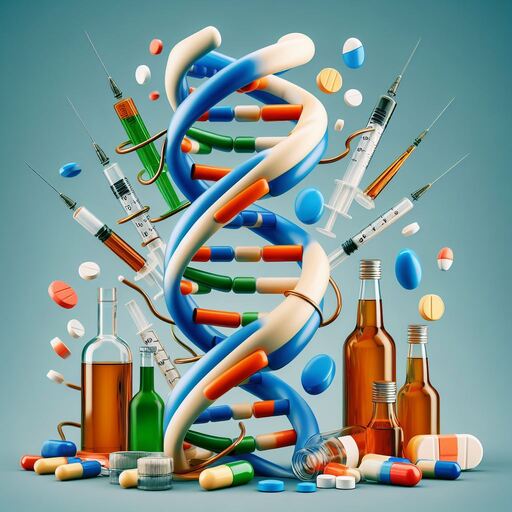The Role of Genetics in Addiction
The Role of Genetics in Addiction
Addiction is a complex disorder that affects millions of individuals worldwide. While environmental and lifestyle factors play a significant role in addiction, genetics also play an important role in the development of addictive behaviors. In this article, we will explore the role of genetics in addiction and how it can impact treatment options.
Role of Genetics in Addiction:
1. Genetic Predisposition: Research suggests that certain genetic factors can increase the risk of developing an addiction. For example, individuals with a family history of alcoholism or substance abuse may be more likely to develop an addiction themselves.
2. Neurotransmitter Systems: Genetics also play a role in the neurotransmitter systems that contribute to addictive behaviors. For example, variations in the dopamine transporter gene have been linked to increased vulnerability to addiction.
3. Chronic Stress: Genetic factors can also increase an individual’s susceptibility to chronic stress, which is a common trigger for addictive behaviors.
4. Co-occurring Conditions: Some individuals with addictive behaviors may also have co-occurring mental health conditions such as depression or anxiety, which can be influenced by genetic factors.
Impact on Treatment Options:
The Role of Genetics in Addiction
1. Medications: Genetic testing can help identify individuals who are more likely to respond to certain medications used in addiction treatment. For example, individuals with variations in the dopamine transporter gene may benefit from medication that enhances dopamine levels.
2. Family Therapy: Family therapy can be an effective treatment option for individuals with a family history of addiction. Genetic testing can help identify these individuals and provide them with the necessary support and resources to overcome addiction.
3. Support Groups: Joining a support group can provide individuals with a sense of community and understanding from others who have experienced similar struggles with addiction.
Conclusion:
Genetics play an important role in addiction and can impact treatment options. By identifying genetic predispositions, medications can be tailored to specific individuals, family therapy can provide necessary support, and support groups can offer a sense of community. However, it is important to remember that addiction is a complex disorder that requires a multidisciplinary approach for successful recovery.
The Role of Genetics in Addiction

